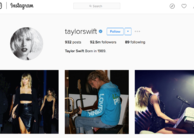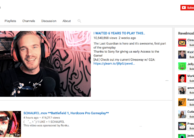From Elon Journal of Undergraduate Research in Communications VOL. 4 NO. 2The Construction of Southern Identity Through Reality TV: A Content Analysis of Here Comes Honey Boo Boo, Duck Dynasty and Buckwild
IN THIS ARTICLE
KEYWORDS
AbstractThe reality television genre has been increasingly at the forefront of media and cultural studies and a subject of critique across the disciplines of communications, anthropology and visual studies. While reality television programs have been analyzed for elements of racism and sexism, quantitative research to date has rarely been done to explore whether the portrayal of the American southerner was distorted. Using a data-driven approach, the frequency of commonly held southern stereotypes within three shows across three networks were evaluated through content analysis. The researcher observed 100 minutes of each program, marking incidents of visibly unintelligent, crude, violent and unhealthy behavior. Results showed high frequencies of the "unintelligent," "crude" and "violent" stereotypes. I. IntroductionCandid Camera, an American television comedy series that premiered in 1948, is often credited as the first reality television program.1 Since that time, and particularly within the past decade, reality TV has exploded into mainstream popular culture. Reality-based shows are no longer a rare occurrence on television; they are now ubiquitous in television programming across networks ranging from MTV to The History Channel. Viewers are not just watching these shows, but they are discussing them long after the segment ends. According to an article from the New York Times, 15 of the top 20 highest-rated programs among those between ages 18 and 29 were reality or unscripted shows.2 In recent years, reality TV programs featuring redneck culture in particular have seen increased popularity, showing southerners doing everything from fishing with their bare hands, eating triple-fried foods at county fairs, making up words not found within the traditional English dictionary, and often times just acting downright ignorant and crude. The issue here is that while these shows may be watched solely for their entertainment value and while they seem harmless and even fun, they are constructing a distinct southern identity and it is not a flattering one at that. Shows like Here Comes Honey Boo Boo (TLC), Hillbilly Handfishin' (Animal Planet), Duck Dynasty (A&E), and Swamp People (History Channel) are beginning to dominate programming across multiple stations. It is interesting to note that these shows are appearing on a variety of networks. They are not limited to the less serious stations and are beginning to be featured on networks heavily trusted for disseminating accurate information through documentary-style production. One must ask the question, as with any reality TV program, are the subjects of these shows really being represented as they actually exist when the camera is not present? To what extent may they be simply performing constructed cultural identities that have already been, in some sense, assigned to them? Related to this, one must also consider what role both subject and filmmaker play in the production of these programs. Critical analysis from disciplines ranging from anthropology to visual studies may be applied to explore these issues. This paper will place the study of popular culture, specifically the exploration of issues within reality television, at academic level. The analysis will be approached using theoretical frameworks from sociology and anthropology along with media studies. The intention of this paper is to explore issues of representation of reality television subjects from the American South. Secondary research will explore the impact of reality television on viewers' perception of reality and reference studies on stereotypes seen in other areas of reality television. Primary research will include a content analysis of Here Comes Honey Boo Boo (TLC), Buckwild (MTV), and Duck Dynasty (A&E). II. BackgroundSome might argue that studying popular culture, which is sometimes referred to as "low culture," is essentially frivolous and therefore not worthy of scholarly study. After all, how could studying a genre where absurdity is heightened, where storylines are deliberately constructed, possibly be considered worthy of an intellectual analysis? How could material that is so mass-produced be on the same level as studying high culture? Filoteo argues that it is precisely because this popular culture is mass-produced and mass consumed that it is worthy of study. Examining popular culture through a critical lens helps us learn about our society. It helps us hold the "dominant class" (i.e. those in control of editing and producing reality television and other forms of popular culture) accountable for the messages that are being communicated through various media. It is thus imperative for us to study these messages and try to uncover meaning from them. Quoting Friedman (2002), Filoteo explains the possible reason that reality television has been studied minimally. The lack of scholarship is not due to "a lack of an interest in the subject, but rather to an inherent difficulty in describing and containing the ideological, economic, cultural, technological, and political influences that impact televisual representations of real events."3 If these reality television shows are deliberately being constructed in a way that expresses overt or perhaps more subtle messages about the subjects in the shows, it is imperative that we study these messages through a critical lens as they may be indicative of larger societal issues. While attention has been brought to the unfair representation of particular ethnic groups as well as women in reality television, little to no academic work has been written on the representation of the American southerner through these shows. Why has this group been neglected? In a 2011 article from NPR, Eric Deggans argues that these shows have emerged to make "a new generation laugh at the expense of real understanding." He writes, "Despite reality TV's tendency to stupefy everything it touches, perhaps it's time for these programs to actually get real and give us a vision of Southern culture that reaches beyond the fun-loving redneck." 4 In an article from the Washington Post, Ted Ownby, the director of the Center for the Study of Southern Culture, is quoted saying that people from the South get frustrated at the "narrow range of representations" on these shows. According to this article, it has become increasingly apparent that individuals from the American South are the last cultural group to be openly mocked and stereotyped without penalty.5 III. Literature ReviewSince introduction of reality shows, scholars have been studying the genre. Previous research has explored the psychological appeal of reality television for viewers, issues of performance and authenticity of reality TV subjects, as well as the many ethical issues that arise with the production of these shows. While previous studies have addressed everything from substance abuse in the popular reality show, The Osbournes, to issues of racism in The Real World, no studies to date have examined the recent explosion of "redneck" reality shows. While scholars and critics have written articles expressing their opinions on the representation of subjects in these shows, there is currently no quantitative research on the actual frequency of southern stereotypes in reality television. For this reason, the findings of this study may be vital in providing some of the first concrete data to support or contradict the claims that these reality shows play a role in emphasizing existing southern stereotypes. Emergence of Reality TV: Explaining the PhenomenonSeveral scholars have written about the emergence of reality television as a popular TV genre. Many have written about how reality television has been born out of earlier styles of observational filmmaking, and now can be considered a part of post-documentary culture, where documentary realism blends with celebrity and constructed scenes.6 Many have compared earlier observational documentary films with reality television, suggesting the latter is now more relevant in our study of modern culture. One author who provides some historical background on why reality TV came into existence is journalist Richard Huff. According to Huff, during a time when networks were struggling to fill programming gaps, reality TV served as an inexpensive alterative to bring in the audiences that these networks were specifically trying to reach: young adults.7 Some of the earliest shows, including MTV's longest running reality series, The Real World, and Fox Broadcasting Company's American Idol, started to become some of the most watched, most talked about shows on television. Performance and AuthenticitySeveral scholars have also explored issues of performance and authenticity in reality television, specifically looking at underlying motivations for reality TV subjects to perform an assigned role despite reality TV's claims of depicting subjects as they really are in everyday life. In her text, Rachel Dubrofsky suggests that participants in reality shows do not actually have complete autonomy in how to present themselves, suggesting that editing techniques in particular play a massive role in constructing reality on these programs.8 Other scholars, including those who studied earlier modes of documentary filmmaking, have suggested that subjects are not represented as they really are because the presence of a camera inevitably causes a behavioral change in the subject. Some scholars have suggested that when subjects know they are being filmed, they have a greater tendency to "perform," exaggerating certain personal characteristics or at the other end of the spectrum, changing their persona altogether. Annette Hill, a leader in reality television research, found that many viewers have the common-sense belief that in order to create entertaining television, there is a basic need for participants to be entertaining.9 Needless to say, this is problematic when considering the supposed authenticity of reality TV subjects.Continued on Next Page » Suggested Reading from Inquiries Journal
Inquiries Journal provides undergraduate and graduate students around the world a platform for the wide dissemination of academic work over a range of core disciplines. Representing the work of students from hundreds of institutions around the globe, Inquiries Journal's large database of academic articles is completely free. Learn more | Blog | Submit Latest in Business & Communications |

















